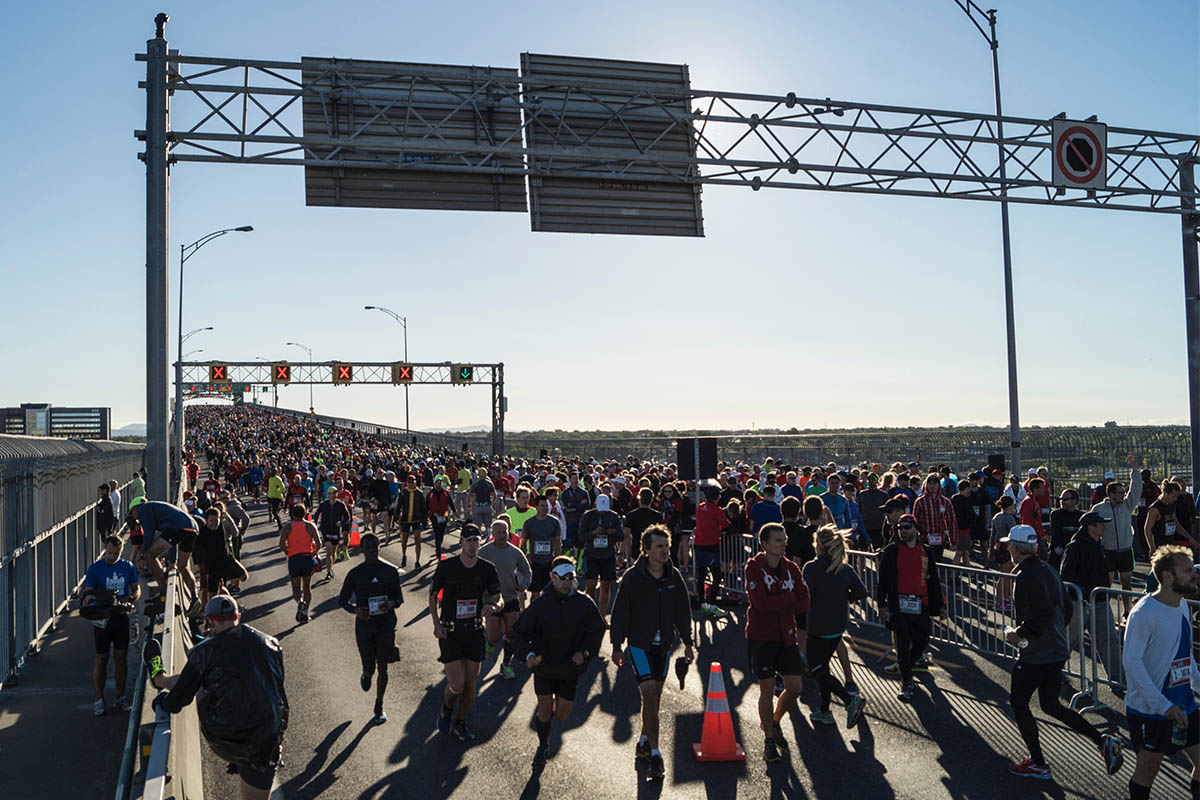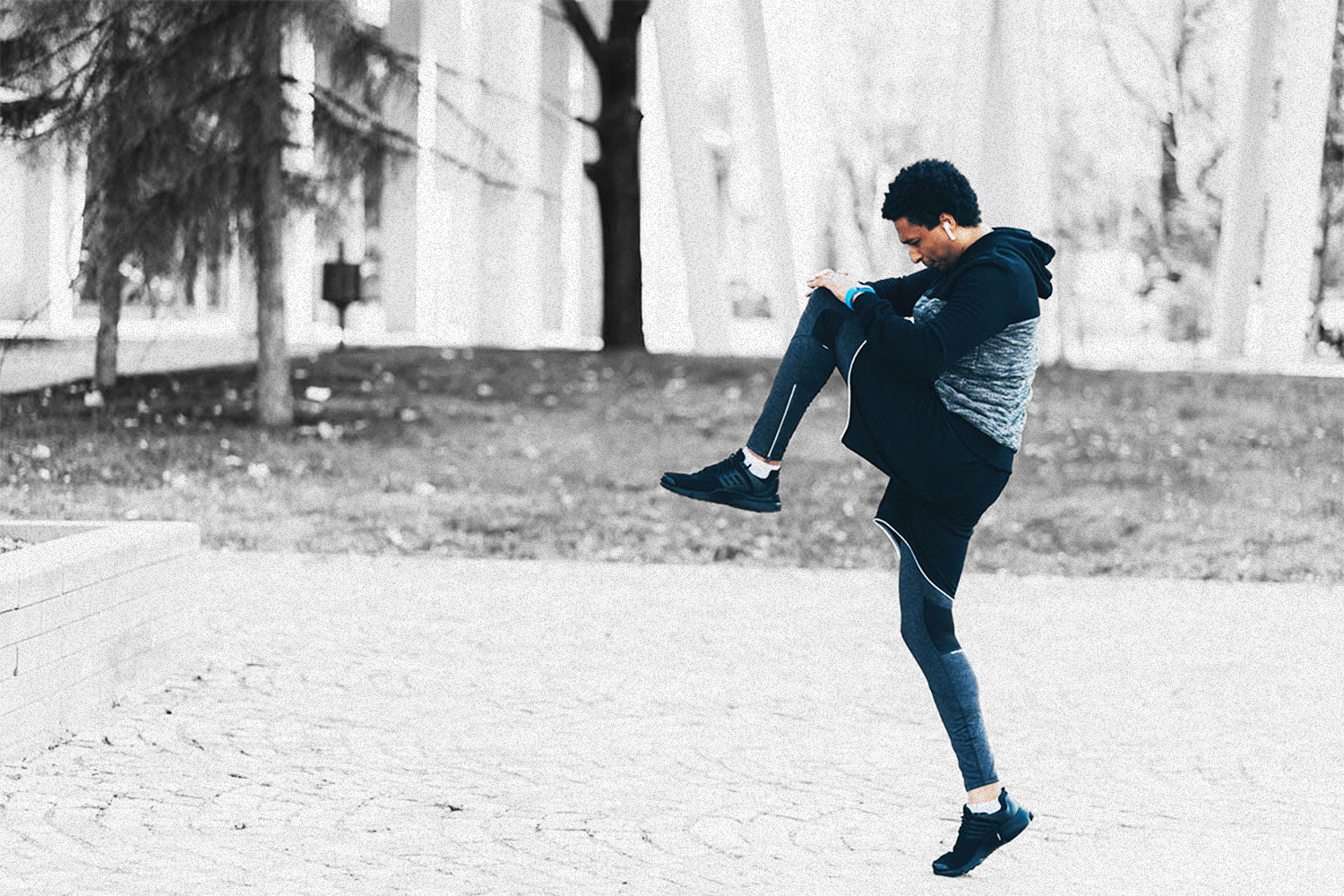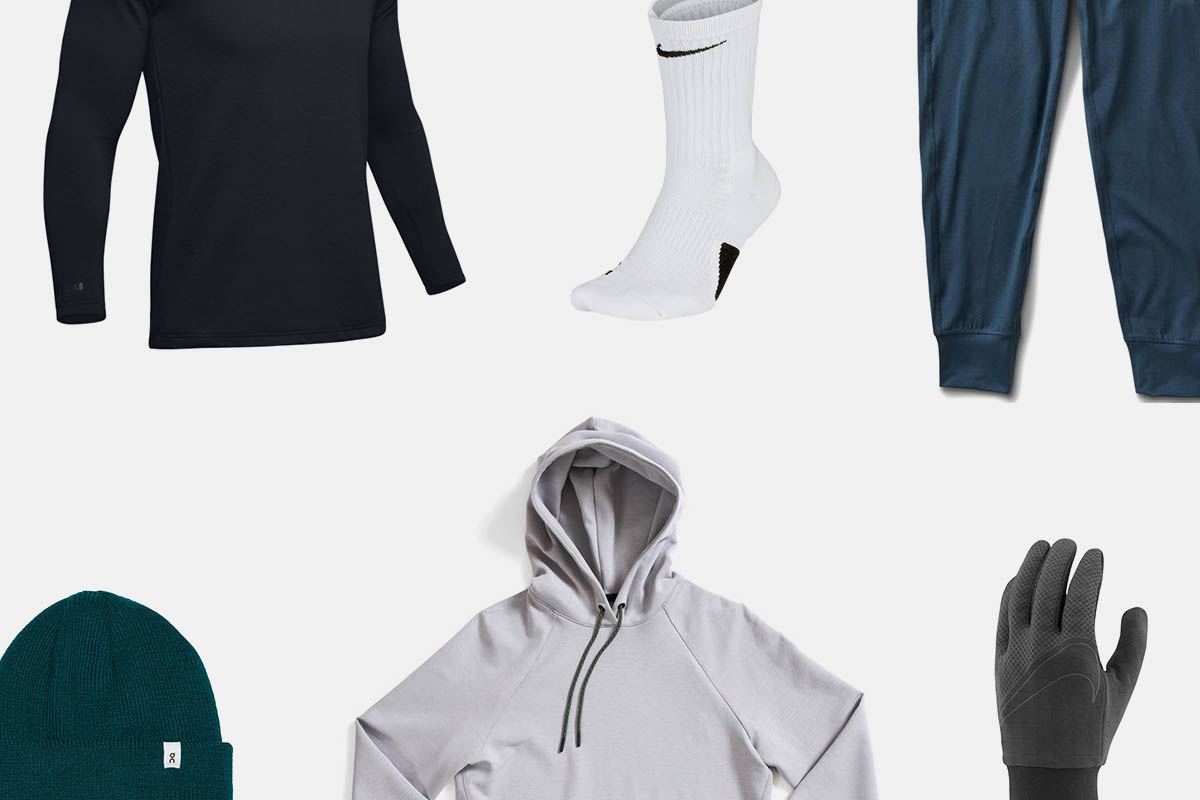“We’re faking a marathon and need your help.”
That’s a recent CTA from Kyle Scheele (Instagram bio: Author, Artist, Instigator), who’s hosting a made-up event called the Home Run Marathon. On February 20, over 30,000 people — about even with the number that races the Boston Marathon — will don printable race bibs and post faux-sweaty selfies to social media. Scheele provides his registered “runners” with custom green-screen backgrounds, so they can really sell it. Everyone is automatically assigned a finishing time after signing up.
What’s the point? In large part, it would seem, to make fun of runners. The ruse is an elaborate (if thinly veiled) effort to lampoon marathon finishers — many of whom scrapbook their training online, ask friends for donations and cap the journey off with a climactic Instagram. Scheele’s disciples can have a laugh in a couple weeks without even getting off the couch. And the joke is intended to make them feel better for perhaps not having gotten off the couch in months.
It seems an extremely odd gag for this time, considering that thousands have had their marathon dreams dashed in the last 12 months. Of the six major marathons, only Tokyo and London were held in 2020, and each included only a limited field of professionals. Marathons — hokey as they may seem — are gathering grounds for positivity, with stories coming out every year about families finishing together, adults reaching weight-loss goals, and disabled participants reaching the finish line.
Last year, I was moved by the story of Huwe Burton, a man who’d been wrongfully incarcerated for 28 years, who took up running in prison. He ran the New York City Marathon with the Innocence Project worker who helped win his freedom.
Not to mention, running has been a godsend for so many during quarantine, a way to leave the house and encourage physical and mental health. Making a farce of it feels very high school, when the “cool kids” refused to jog in gym class. Still, to the Home Run Marathon’s credit, there is some good coming out of this initiative.
The Washington Post interviewed Julie Zachwieja, a doctor based in Michigan, who is the official sponsor of the event’s merchandise. She donated $5,000, which will go directly to DonorsChoose, a nonprofit that subsidizes teachers who need more supplies for the classroom. We can all get behind that. Plus, Zachwieja actually plans to run. She’ll be posting a video each mile, thanking every teacher who’s helped her along the way to becoming a doctor. The power of running wins out after all.
Whether you’re looking to get into shape, or just get out of a funk, The Charge has got you covered. Sign up for our new wellness newsletter today.

















